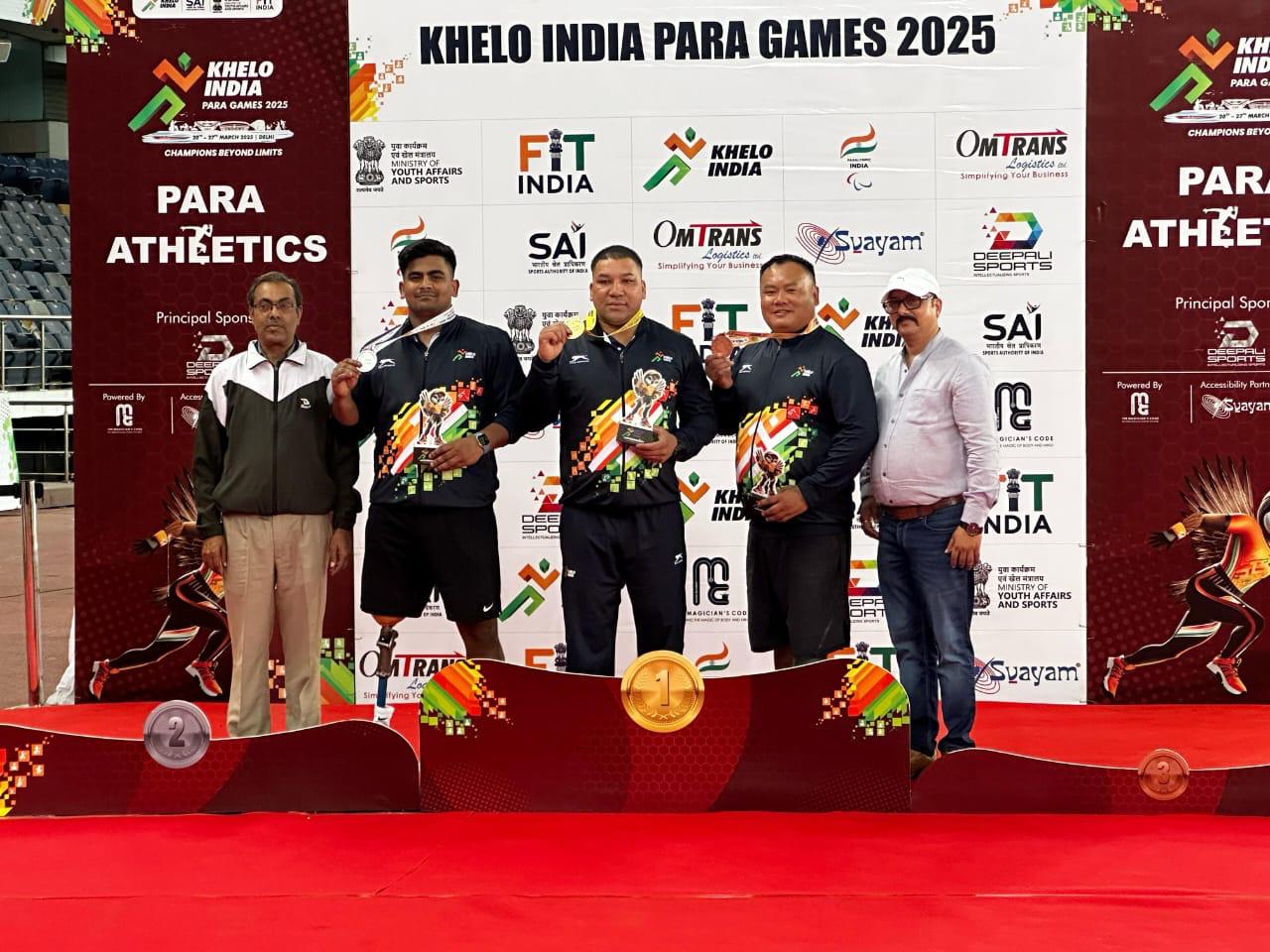The 2nd Khelo India Para Games, which was held in New Delhi between March 20 to 26, 2025, provided another platform for India’s burgeoning para-sports talent to shine. Among the standout performers at this year’s event were athletes from the Indian Army’s Para-Athletic Node (APN) at the Bombay Engineer Group & Centre (BEG), Khadki, and the Army Marksmanship Unit. Together, they clinched an impressive total of 15 medals—four gold, seven silver, and four bronze—showcasing their athletic prowess and the Indian Army’s commitment to nurturing excellence in sports.
The Army’s athletes left an indelible mark with clean sweeps in two events, demonstrating remarkable resilience, determination, and competitive spirit
The Army’s strong showing in para-shooting was equally commendable, with Naib Subedar Amir Ahmad Bhat and Sepoy Anandhakrishnan H winning silver medals in the 25m Pistol and 50m Rifle Prone events, respectively. These victories further highlight the growing excellence of India’s para-athletes and the role the Army plays in fostering this success.
The Indian Army’s Paradigm Shift in Sports Development
This remarkable Khelo India Para Games success is not an isolated achievement. It is part of a broader culture within the Indian Army that places a premium on sports excellence and inclusivity. In recent years, the Army has increasingly focused on rehabilitation and reintegration for soldiers injured in the line of duty, providing them a new avenue to serve the nation through sports. The Army’s growing emphasis on para-sports is a direct consequence of this commitment.
The Army’s initiative to support para-athletes formally began in the mid-2010s, with the establishment of the Army Paralympic Node (APN) at the BEG Centre in Kirkee, Pune, in 2017. This marked the beginning of an ambitious program designed to train soldiers with disabilities and help them achieve excellence in sports. The program’s goal was twofold: to offer injured soldiers a chance to rebuild their lives through athletics and encourage them to represent India internationally.
By integrating this initiative under the Army’s broader sports governance framework, the Army Sports Control Board (ASCB) ensured that para-athletes received the same level of support, resources, and career incentives as their able-bodied counterparts. This approach laid the foundation for the success that Army athletes now enjoy on the national and international stage.
A Timeline of Triumph: Army Para-Athletes’ Path to Glory
Since the establishment of the APN, the Indian Army has seen its para-athletes achieve significant milestones on the international sporting circuit.
In 2018, at the Asian Para Games in Jakarta, Army para-athletes won five medals, marking a significant breakthrough. Notably, Subedar Anandan Gunasekaran, a blade runner, claimed multiple medals, signalling the arrival of a new generation of para-athletes within the Army.
The success continued in 2019, with Havildar K. Narayana and Sepoy Kuldeep Singh securing India’s first international para-rowing medals at the World Rowing Cup II in Poland. The same year, Anandan Gunasekaran achieved a historic triple crown at the World Military Games, winning gold in the 100m, 200m, and 400m sprints.
The Tokyo 2020 Paralympics (held in 2021) further cemented the Army’s role in shaping India’s para-sports legacy. Havildar Soman Rana, a single-leg amputee shot-putter, became the first Army athlete to qualify for the Paralympic Games. Although he narrowly missed a medal, his qualification was a landmark achievement that inspired countless other soldiers.
The 2023 Asian Para Games in Hangzhou saw another leap forward. Army athletes contributed seven medals to India’s total, with standout performances from Sepoy D. Solairaj, who set a new Asian record in the T64 long jump, and Guardsman Suraj Singh, who shot a world-record score in archery. This success was a testament to the Army’s commitment to nurturing talent and providing its athletes with the resources they need to succeed.
Paris 2024: A New Milestone
The momentum continued into 2024, with the Indian Army sending four para-athletes to the Paris Paralympic Games. Among them was Havildar Hokato Hotozhe Sema, who became the first Army soldier in over 50 years to win a Paralympic medal. Sema’s bronze in the men’s F57 shot put at the Paris Games was not only a personal triumph but also a resounding affirmation of the Army’s para-sports program. Sema’s achievement is symbolic of the broader success of the initiative, demonstrating that even those who have faced the greatest adversities can rise to the pinnacle of global sport.
Artira Banerjee is a military author and defence & strategic affairs columnist.

